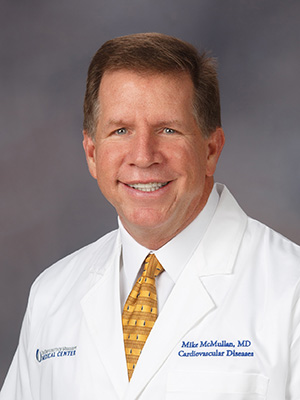
Student Mistreatment in Medical Education: Recognizing, Addressing, and Preventing Harm
By: Dr. Mike McMullan
Medical education is often described as a transformative journey, shaping students into skilled and compassionate physicians. However, for many, this journey is also marked by experiences of mistreatment that can significantly undermine their learning, well-being, and professional development. Despite growing awareness and institutional efforts to address the issue, mistreatment remains a persistent challenge in medical schools across the country. A June 2024 article published by AAMC News reported that more than one in three medical students and residents have experienced faculty mistreatment, ranging from public humiliation to sexist remarks.
The Association of American Medical Colleges (AAMC) defines mistreatment as “behavior that shows disrespect for the dignity of others and unreasonably interferes with the learning process. This includes, but is not limited to, physical punishment, sexual harassment, psychological cruelty, and discrimination based on race, religion, ethnicity, sex, age, or sexual orientation.” Mistreatment can manifest in many forms—from overt hostility and harassment to more subtle behaviors such as exclusion, microaggressions, and biased treatment. Regardless of the intent, these actions contribute to a toxic learning environment and are often rationalized as “tough love” or necessary preparation for the demands of clinical practice. However, both research and student testimonies consistently demonstrate that such approaches are not only ineffective but also harmful.
Examples of mistreatment in medical education are unfortunately common. Verbal harassment, such as publicly chastising or belittling students, is one of the most frequently reported forms. Discrimination, including biased remarks or unequal treatment based on identity, and sexual harassment, such as inappropriate comments or advances, are also prevalent. Additionally, students may be excluded from learning opportunities based on personal characteristics rather than merit. These behaviors can originate from faculty, residents, nurses, administrators, or even peers. Unfortunately, many incidents go unreported due to fear of retaliation or the belief that reporting will not lead to meaningful change.
The impact of mistreatment on students is far-reaching. Mentally, it can lead to anxiety, depression, post-traumatic stress disorder, and even suicidal ideation. Professionally, it contributes to burnout, loss of confidence, and career regret. Academically, students may suffer from lower evaluations, missed opportunities, and impaired skill development. UMMC data from the AAMC Graduation Questionnaire reveal that nearly one in three students (29% locally versus 38% nationally) report experiencing mistreatment, with most incidents occurring during clinical clerkships. Despite this, only 8% of those who experienced mistreatment in 2024 reported it. The most common reasons for not reporting include fear of reprisal and the perception that nothing would be done.
To monitor and address mistreatment, UMMC and other institutions utilize several tools. The AAMC GQ Survey provides annual data on student experiences, while formal and informal complaints are logged and reviewed by Student Affairs. Documentation and follow-up are maintained in student files and analyzed for trends. These efforts are essential for identifying patterns and ensuring accountability.
Addressing mistreatment requires a comprehensive, multi-pronged approach. Education is key—faculty, residents, and students must be trained to recognize and prevent mistreatment. Institutions must also provide confidential and accessible reporting mechanisms, enforce policies with clear consequences, and promote a culture of empathy, professionalism, and accountability. At UMMC, several initiatives have been implemented to support these goals. These include updating and education regarding the SOM Mistreatment Policy and Procedure; badge cards with reporting information; regular reminders through class meetings, email links, and newsletters; student and faculty professionalism contracts; and resident training modules.
Mistreatment in medical education is not merely a student issue—it is a systemic challenge that affects the entire healthcare community. By fostering a culture of respect, transparency, and accountability, medical schools can ensure that all students are supported, valued, and empowered to become the compassionate, competent physicians our society needs. As Dr. Martin Luther King Jr. wisely said, “It is always the right time to do the right thing.”


